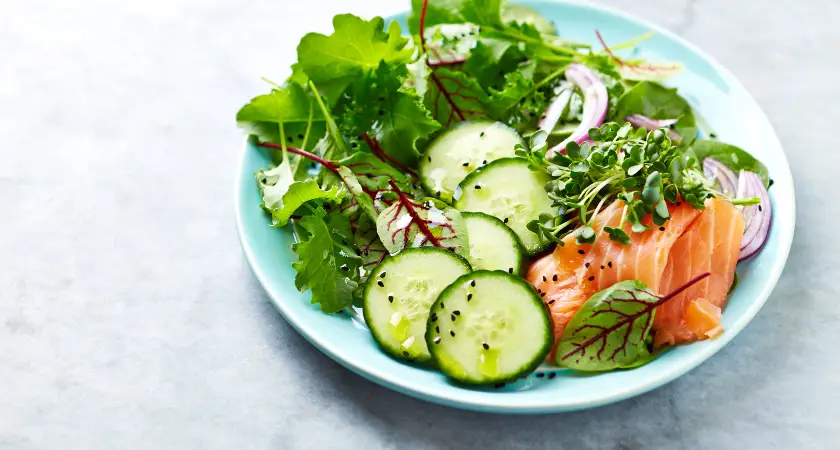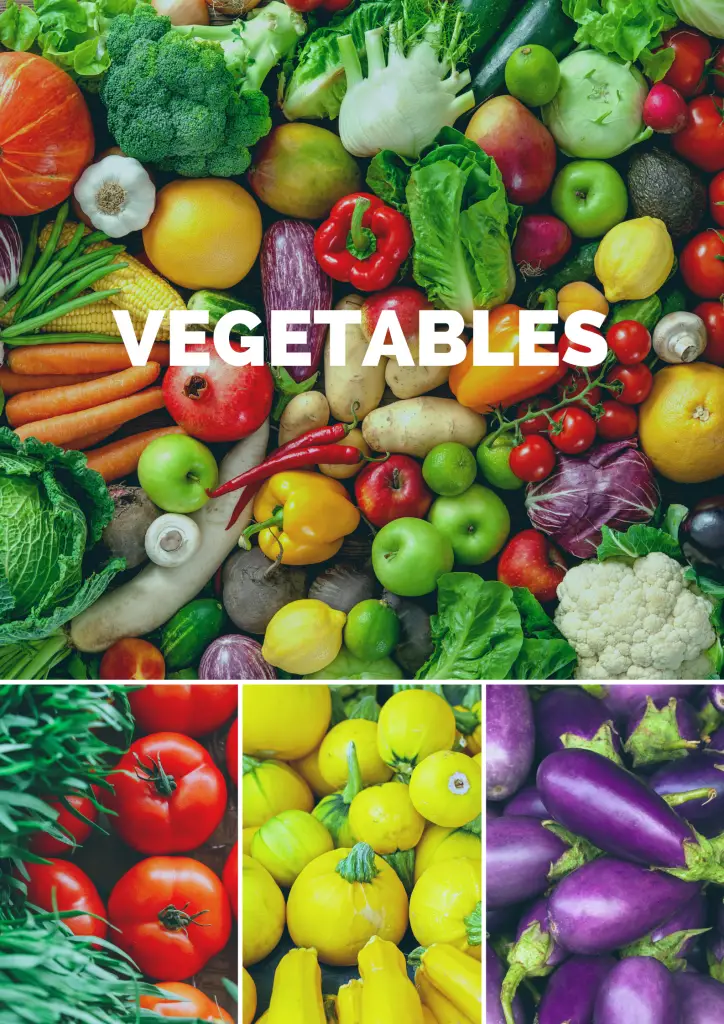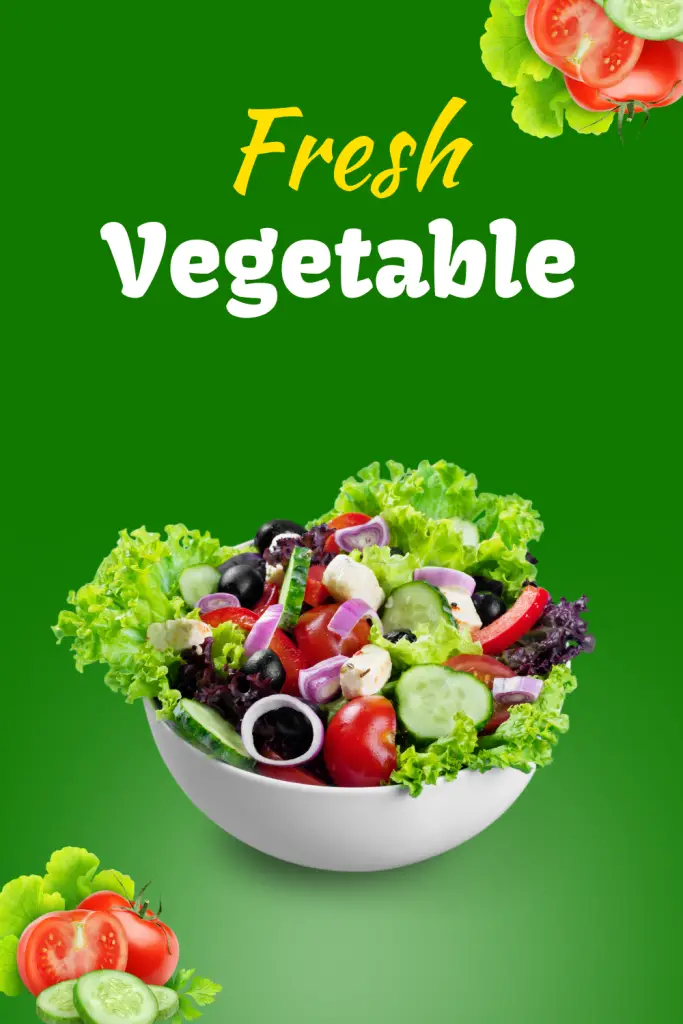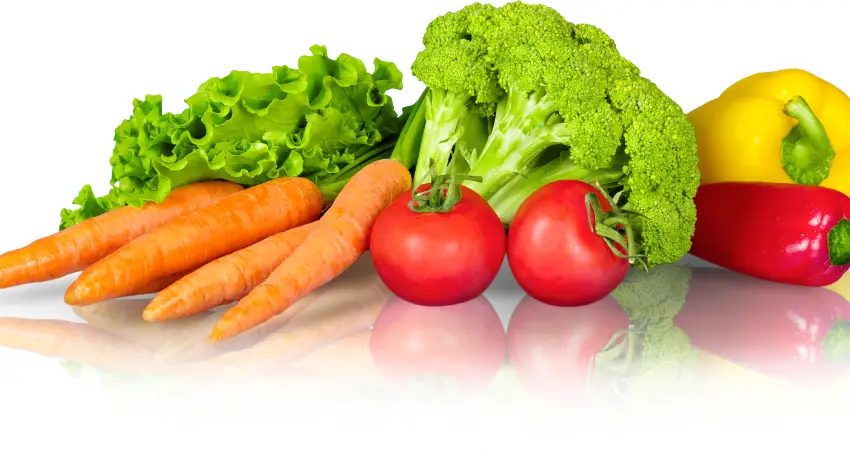Looking to fuel your fitness and boost your protein intake without loading up on carbs?
Look no further! In this article, we will unveil the top low-carb, high protein vegetables that are not only delicious but also incredibly beneficial for your fitness goals.
Fueling Your Fitness: Discover the Top Low Carb, High Protein Vegetables
Whether you’re a vegetarian, vegan, or simply looking to incorporate more plant-based options into your diet, these vegetables will provide you with the essential nutrients and amino acids your body needs to thrive.
From nutrient-packed broccoli and fiber-rich spinach to versatile cauliflower and protein-packed peas, we’ve got you covered.
Not only are these vegetables low in carbs, but they are also high in fiber, vitamins, and minerals, making them an excellent choice for those seeking a healthy and balanced diet.
So, let’s dive in and discover the power of these supercharged veggies that will take your fitness journey to the next level!

The Importance of a Low Carb, High Protein Diet
A low carb, high protein diet has gained popularity in recent years due to its numerous health benefits.
By reducing your carbohydrate intake and increasing your protein consumption, you can promote weight loss, improve blood sugar control, and enhance muscle growth and repair.
When it comes to fueling your fitness goals, a low-carb, high protein diet can be particularly beneficial. Protein is the building block of muscles and is essential for muscle recovery, growth, and overall performance.
Additionally, reducing your carb intake can help stabilize blood sugar levels, prevent energy crashes, and promote a steady supply of energy throughout the day.
By incorporating low-carb, high protein vegetables into your meals, you can effectively support your fitness journey and achieve optimal results.
Related Articles
Canned Beets and High Blood Pressure
Healing Heart Disease Naturally
Heart Healthy Homemade Cornbread
A List of Low Carb, High Protein Vegetables?
Low-carb, high protein vegetables are a group of plant-based foods that are low in carbohydrates and high in protein content.
These vegetables provide an excellent alternative to traditional protein sources such as meat, poultry, and fish, making them ideal for vegetarians, vegans, and individuals looking to reduce their meat consumption.
Low-carb, high protein vegetables are rich in essential amino acids, vitamins, minerals, and fiber, making them a nutrient-dense addition to any diet.
By incorporating these vegetables into your meals, you can ensure you’re getting a well-rounded mix of macronutrients, while also reaping the many health benefits they offer.

Benefits of Incorporating Low Carb, High Protein Vegetables into Your Diet
Incorporating low carb, high protein vegetables into your diet offers numerous benefits for your overall health and well-being.
Firstly, these vegetables are rich in dietary fiber, which aids in digestion, promotes satiety, and helps maintain a healthy weight.
The high fiber content also supports a healthy gut microbiome, which is essential for a strong immune system and proper nutrient absorption.
Additionally, low-carb, high protein vegetables are packed with vitamins and minerals that are vital for various bodily functions.
For example, broccoli is an excellent source of vitamin C, which boosts the immune system, while spinach is loaded with iron, which is essential for oxygen transport and energy production.
By incorporating these vegetables into your meals, you can ensure you’re nourishing your body with the essential nutrients it needs to thrive.
Nutritional Profile of Top Low Carb, High Protein Vegetables
To make informed choices about the vegetables you incorporate into your meals, it’s essential to understand their nutritional profiles.
Here, we will explore the nutritional value of some of the top low carb, high protein vegetables:
1. Broccoli:
Broccoli is a cruciferous vegetable that is low in carbs and high in protein. It is an excellent source of vitamins A, C, and K, as well as folate, fiber, and antioxidants.
Broccoli is also rich in sulforaphane, a compound known for its anti-inflammatory and anticancer properties.
2. Spinach:
Spinach is a leafy green vegetable that is low in carbs and high in protein. It is packed with vitamins A, C, and K, as well as iron, calcium, and magnesium.
Spinach is also a good source of antioxidants, which help protect against oxidative stress and inflammation.
3. Cauliflower:
Cauliflower is a versatile vegetable that is low in carbs and high in protein. It is a great source of vitamins C and K, as well as folate, fiber, and antioxidants.
Cauliflower can be used as a low-carb alternative to rice, pizza crust, and mashed potatoes.
4. Peas:
Peas are a legume that is low in carbs and high in protein. They are rich in vitamins A, C, and K, as well as fiber, iron, and antioxidants.
Peas are also a good source of plant-based protein, making them an excellent choice for vegetarians and vegans.
These are just a few examples of the top low carb, high protein vegetables. By incorporating these vegetables into your meals, you can enjoy a wide range of flavors and textures while providing your body with the essential nutrients it needs.
Delicious Recipes Using Low Carb, High Protein Vegetables
Now that we’ve explored the nutritional value of low carb, high protein vegetables, let’s discover some delicious recipes that incorporate these supercharged veggies:
1. Broccoli and Cheddar Stuffed Chicken Breast: This recipe combines the protein-rich goodness of chicken breast with the nutrient-packed broccoli and the creamy indulgence of cheddar cheese.
It’s a satisfying and flavorful dish that is sure to fuel your fitness goals.
2. Spinach and Feta Stuffed Portabello Mushrooms: These stuffed mushrooms are a delicious and nutritious option for a vegetarian meal.
The combination of spinach, feta cheese, and portabello mushrooms creates a savory and filling dish that is packed with protein and essential vitamins.
3. Cauliflower Fried Rice: This low carb alternative to traditional fried rice is made with cauliflower rice, which is simply grated cauliflower. It’s a flavorful and satisfying dish that is high in protein, low in carbs, and packed with veggies.
4. Pea and Mint Soup: This refreshing soup is made with peas, vegetable broth, and fresh mint leaves. It’s a light and nutritious option that is rich in protein and fiber, making it a perfect choice for a healthy lunch or dinner.
These recipes are just a starting point for incorporating low carb, high protein vegetables into your meals.
Get creative and experiment with different combinations and flavors to discover your own favorite dishes!

How to Include Low Carb, High Protein Vegetables in Your Meal Planning
Incorporating low carb, high protein vegetables into your meal planning is easier than you might think. Here are some tips to help you get started:
1. Plan your meals in advance: Take the time to plan your meals for the week, including the vegetables you want to incorporate. This will help you stay organized and ensure that you have all the necessary ingredients on hand.
2. Experiment with new recipes: Don’t be afraid to try new recipes and experiment with different combinations of low carb, high protein vegetables. This will keep your meals exciting and prevent you from getting bored with your diet.
3. Prep your vegetables in advance: To save time during the week, consider prepping your vegetables in advance. Wash, chop, and store them in airtight containers in the refrigerator, so they’re ready to use when you need them.
4. Use vegetables as the base of your meals: Instead of relying on traditional carbs like rice or pasta, use low carb, high protein vegetables as the base of your meals. For example, instead of spaghetti and meatballs, try zucchini noodles with marinara sauce and lean turkey meatballs.
By incorporating these tips into your meal planning, you can effortlessly include low carb, high protein vegetables into your diet and reap the many health benefits they offer.
Tips for Maximizing the Nutritional Value of Low Carb, High Protein Vegetables
To maximize the nutritional value of low carb, high protein vegetables, consider the following tips:
1. Cook vegetables lightly: To preserve the nutrients in your vegetables, avoid overcooking them. Steaming, sautéing, or roasting vegetables lightly will help retain their nutritional value.
2. Pair vegetables with healthy fats: Some vitamins, such as vitamins A, D, E, and K, require fat for optimal absorption. Pairing your low carb, high protein vegetables with healthy fats like olive oil, avocado, or nuts can enhance nutrient absorption.
3. Combine vegetables for a complete protein: While vegetables are not complete proteins on their own, you can combine them strategically to create a complete protein. For example, combining beans and rice or lentils and quinoa provides all the essential amino acids your body needs.
4. Eat a variety of vegetables: To ensure you’re getting a wide range of nutrients, aim to eat a variety of low carb, high protein vegetables. Each vegetable offers its unique mix of vitamins, minerals, and antioxidants, so diversify your choices to maximize nutritional benefits.
By incorporating these tips into your diet, you can ensure you’re getting the most out of your low carb, high protein vegetables and supporting your fitness goals.
Common Misconceptions About Low Carb, High Protein Vegetables
Despite their numerous health benefits, there are some common misconceptions about low carb, high protein vegetables. Let’s debunk a few of these myths:
1. Myth: Vegetables don’t provide enough protein.
Fact: While vegetables may not be as protein-dense as animal-based sources, they can still contribute a significant amount of protein to your diet. By incorporating a variety of low carb, high protein vegetables into your meals, you can meet your protein needs.
2. Myth: Low carb vegetables are tasteless.
Fact: Low carb, high protein vegetables can be incredibly flavorful when prepared properly. Experiment with different cooking methods, seasonings, and sauces to enhance the taste and make your meals more enjoyable.
3. Myth: Low carb vegetables are expensive.
Fact: While some low carb, high protein vegetables may be pricier than others, there are plenty of affordable options available. Shop for seasonal vegetables, buy in bulk, or consider growing your own vegetables to save money.
By dispelling these misconceptions, you can embrace the true value of low carb, high protein vegetables and enjoy all the benefits they offer.
Low Carb, High Protein Vegetable Alternatives for Popular High Carb Foods
If you’re looking to reduce your carb intake and replace high carb foods with low carb, high protein alternatives, here are a few ideas:
1. Replace pasta with zucchini noodles or spaghetti squash.
2. Swap rice for cauliflower rice or broccoli rice.
3. Use lettuce wraps instead of tortillas or bread for sandwiches and wraps.
4. Substitute mashed potatoes with mashed cauliflower or turnips.
5. Replace high carb snacks like chips or crackers with roasted chickpeas or edamame.
By incorporating these alternatives into your meals, you can enjoy your favorite dishes while keeping your carb intake in check and boosting your protein consumption.
Conclusion:
Making Low Carb, High Protein Vegetables a Staple in Your Diet
In conclusion, incorporating low carb, high protein vegetables into your diet is a powerful way to fuel your fitness goals and enjoy a wide range of health benefits.
These vegetables not only provide an excellent source of protein but are also rich in fiber, vitamins, and minerals that are essential for overall health and well-being.
By exploring the nutritional value of various low carb, high protein vegetables, trying out delicious recipes, and incorporating these veggies into your meal planning, you can make them a staple in your diet and take your fitness journey to the next level.
So, start experimenting with these supercharged veggies and discover the incredible power they have to transform your health and fitness. Your body will thank you!

